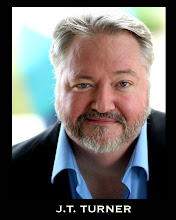Focus is a quality that can be a godsend to an actor.Consider an athlete a sporting event. Somehow, even with hundreds of people yelling and screaming, even with TV cameras on, fellow players moving and chatting, personal thoughts and doubts in their minds, they somehow can make all those things move into the background and focus on doing what they need to do.
Sound familiar? It should, as the same thing, the same focus occurs with actors as well. Despite all the distractions of audience, lights, sets, fellow actors and personal thoughts, a good actor pushes that back in their mind, focuses and lives in the moment. This skill, this wonderful skill, is never as important as it is at an audition.
If you audition a lot, and I hope you do, you know how it goes. You enter the room, and there are 10 other actors who look perfect for the part you are auditioning for. That inner recording starts to play in your mind, "Why are you here? They will get the part over you. There is so and so, he ALWAYS gets cast. You don't know anyone in this theater company, you don't stand a chance." Ah, yes the ever helpful inner monologue.
What I would like you to remember is that those thoughts occur to everyone. But the brain, while an amazing thing, can only do so much at once, and so can be trained to focus better. You can give the brain something to focus on, and that will help push those negative thoughts back. They will try and rise again, but just keep pushing them back. How?
First try a visualization. Picture a magic bubble, like Glinda's bubble in Wizard of Oz, that surrounds you.
Let that be your bubble of protection, focus, concentration. Picture it holding and protecting you from the negative. (If a bubble isn't manly enough for you, go with Iron Mans suit of armor encasing you. Hey it's your brain, whatever works). Oh and by all means, let this protection also let you move away from friends who want to "chat" at the audition. Find a quiet space of your own, and focus.

Now, since your mind can only handle so many thoughts at once, I want you to introduce specific thoughts to push all the negative thoughts away. Keeping your mind busy will keep you focused, so, do this:
1) Read the audition piece out loud. Softly, to yourself, but vocalize.
Now answer the following-
WHERE Does the scene take place?
WHO Are you talking to?
WHAT Do you want from the person listening in the scene?
WHENCE Where was your character before the scene started? (This is sometimes called the 'pre-beat", what was going on just before you speak. I just use Whence because I needed another W!).
Focusing on reading the piece and answering thes 4 critical questions will keep you focused.
Next post, we will talk about the next thing, walking into the audition room.
J.T. TURNER
The Actors Sensei
Private and group lessons available.










